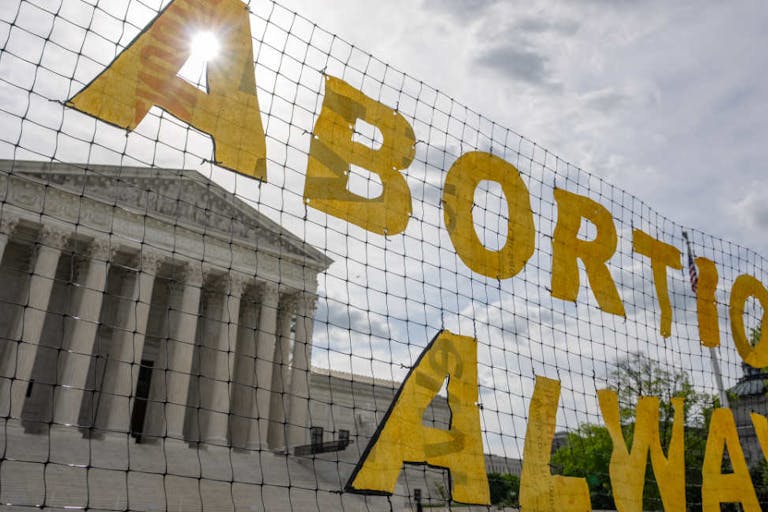
A growing number of Americans call themselves ‘pro-choice’ – but what’s really behind it?
Nancy Flanders
·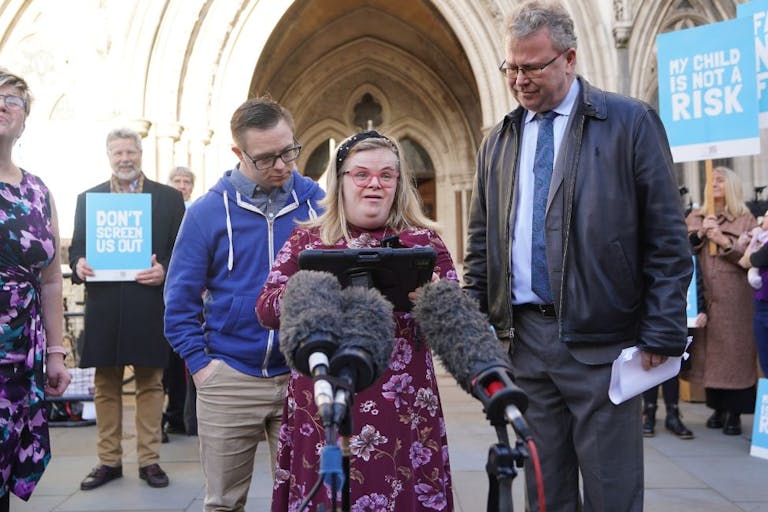
International·By Bridget Sielicki
UK Woman with Down syndrome loses appeal against discriminatory abortion law
A woman with Down syndrome who has been campaigning to end the practice of discriminatory abortions in the United Kingdom has lost a court of appeal challenge against the eugenic law.
Heidi Crowter has been fighting the nation’s abortion law, which allows discriminatory abortions up to birth in cases of a prenatal diagnosis of any disability, including Down syndrome. Crowter has been joined in her efforts by Maire Lea-Wilson, the mother of a son who has Down syndrome. The pair brought legal action against the Department of Health and Social Care, with the aim of removing the section from the Abortion Act that allows discriminatory, eugenic abortions.
In September 2021, their campaign suffered a disappointing loss when two judges assigned to the case decided to uphold the law as it was written.
“The current law is unfair. It makes me feel like I shouldn’t exist, and that I’d be better off dead in the eyes of the law,” Crowter previously said.
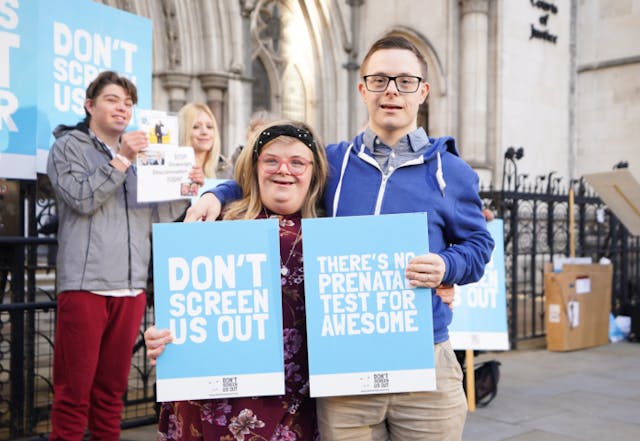
In July, Crowter filed an appeal against the initial decision, again hopeful that the judges would rule in her favor. “In 2022, we live in a society where disabled people are valued equally after birth but not in the womb,” she told SkyNews. “I hope that the judges will agree with me that this law is discrimination and needs to be changed.”
Article continues below
Dear Reader,
Have you ever wanted to share the miracle of human development with little ones? Live Action is proud to present the "Baby Olivia" board book, which presents the content of Live Action's "Baby Olivia" fetal development video in a fun, new format. It's perfect for helping little minds understand the complex and beautiful process of human development in the womb.
Receive our brand new Baby Olivia board book when you give a one-time gift of $30 or more (or begin a new monthly gift of $15 or more).
She suffered crushing defeat again, however, as the appeals judges decided that the current law should stand.
“The court recognises that many people with Down’s Syndrome and other disabilities will be upset and offended by the fact that a diagnosis of serious disability during pregnancy is treated by the law as a justification for termination, and that they may regard it as implying that their own lives are of lesser value,” the judges wrote in a summary. “But it holds that a perception that that is what the law implies is not by itself enough to give rise to an interference with article 8 rights (to private and family life, enshrined in the European Convention on Human Rights).”
Crowter was upset with the ruling but has vowed to keep fighting. “It makes me feel that I shouldn’t be here. That I should be extinct. I know that’s not true, but that’s how it makes me feel,” she told SkyNews.
“I will keep on fighting because we have already informed and changed hearts and minds and changed people’s opinions about the law,” she said. “The law was made in 1967, when we were not even allowed to go to school because of our extra chromosome. So, I think it’s time that the judges move with the times and actually meet with people with Down’s syndrome.”
Crowter has indicated that she may take the case to the Supreme Court, saying, “I will not stop until I am seen as equal in society.”

Live Action News is pro-life news and commentary from a pro-life perspective.
Contact editor@liveaction.org for questions, corrections, or if you are seeking permission to reprint any Live Action News content.
Guest Articles: To submit a guest article to Live Action News, email editor@liveaction.org with an attached Word document of 800-1000 words. Please also attach any photos relevant to your submission if applicable. If your submission is accepted for publication, you will be notified within three weeks. Guest articles are not compensated (see our Open License Agreement). Thank you for your interest in Live Action News!

Nancy Flanders
·
Issues
Nancy Flanders
·
International
Angeline Tan
·
International
Angeline Tan
·
International
Cassy Cooke
·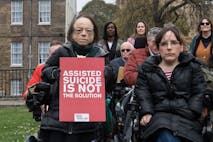
International
Cassy Cooke
·
Human Interest
Bridget Sielicki
·
Activism
Bridget Sielicki
·
Politics
Bridget Sielicki
·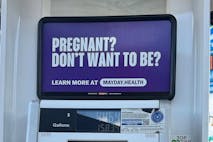
Abortion Pill
Bridget Sielicki
·
Issues
Bridget Sielicki
·